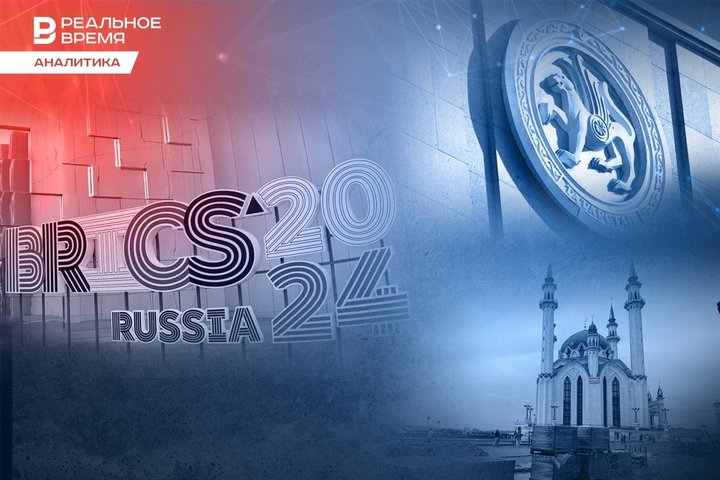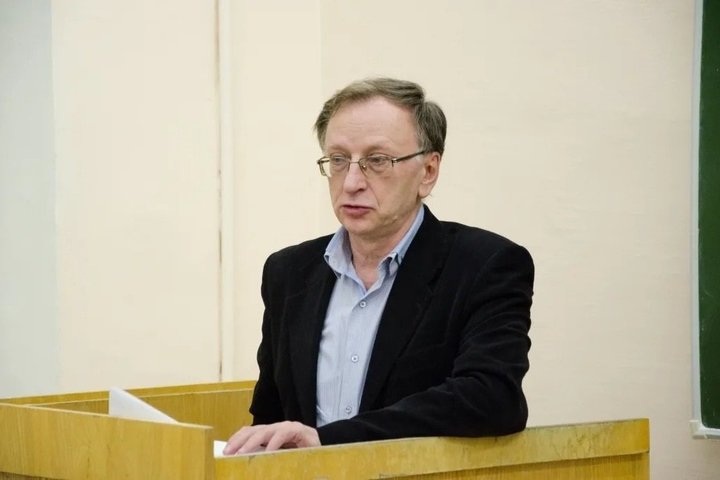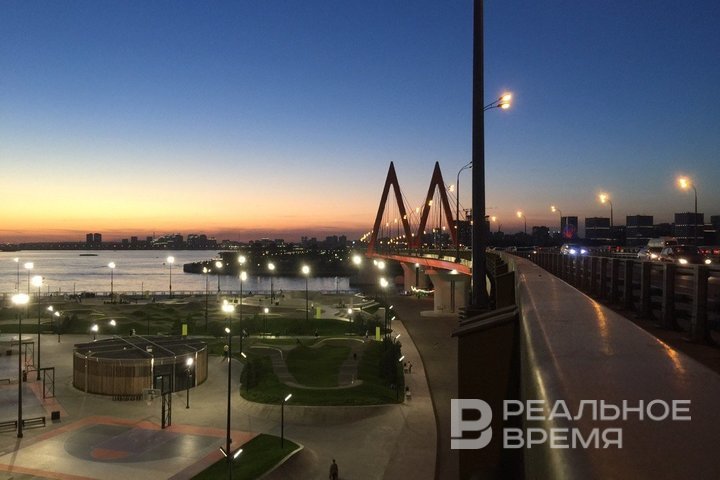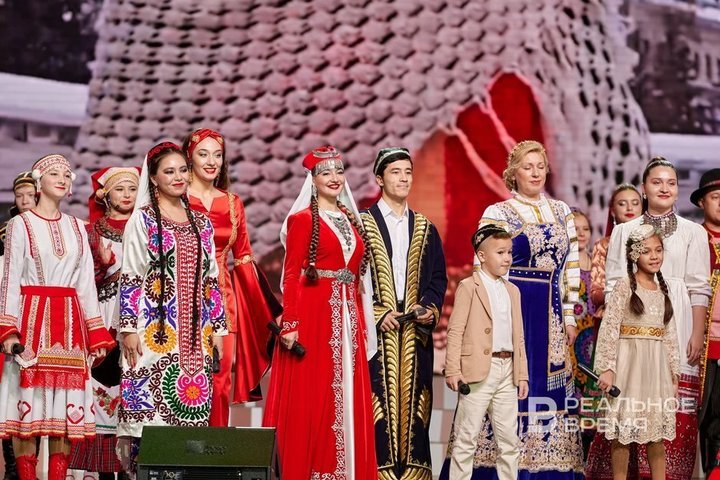‘All the BRICS countries are opponents of Western countries today’
Experts about the upcoming summit of world leaders in Kazan

On October 22-24, Kazan hosts an important international event — the central event within the framework of Russia's BRICS presidency — the summit of heads of state. Realnoe Vremya discusses with experts the significance of this large-scale event for the Tatarstan capital and the region, as well as the prospects for further development of cooperation with the BRICS countries. We have spoken to political expert Vladimir Belyaev.
BRICS is rapidly expanding
Today, the BRICS association, established in 2006, includes 10 countries — Brazil, Russia, India, China, South Africa, Iran, Saudi Arabia, the United Arab Emirates, Egypt, Ethiopia. Several countries have applied to join the BRICS over the past month. At the end of August, the Azerbaijani authorities expressed such a desire. Turkey's application was also received in early September. At the end of September, Prime Minister of Burkina Faso, Apollinaire J. Kyélem de Tambèla, notified Russian Ambassador Igor Martynov of the country's desire to join the BRICS, the other day Minister of Foreign Affairs of Mali Abdoulaye Diop expressed hope to apply for membership in the union in the near future. Recently, the Cuban authorities sent an official request for the republic to join the BRICS as a partner country, said Carlos Pereira, the director general of bilateral relations to the Cuban ministry of foreign affairs.
The leaders of more than 30 countries are expected to attend the summit in Kazan, Russian Deputy Foreign Minister Sergey Ryabkov said earlier. Among those who promised to come to Kazan — Chinese President Xi Jinping, Turkish President Recep Tayyip Erdoğan, Indian Prime Minister Narendra Modi, Brazilian President Luiz Inácio Lula da Silva, Armenian Prime Minister Nikol Pashinyan, Palestinian leader Mahmoud Abbas.
We spoke to with political expert Vladimir Belyaev about the upcoming event, the importance of BRICS on the world stage and the impact of the upcoming event on the economy and investment attractiveness of the region.

The world is no longer striving for globalisation
“Initially, the BRICS was an alliance of countries, each of which is the leader in its region. Russia was the leader in the post-Soviet space, China was the leader in East Asia, India was the leader in South Asia, Brazil was the leader in Latin America, and South Africa produced nine times more industrial products than any of the African countries, Vladimir Belyaev recalled.
Today, all the BRICS countries are opponents of Western countries that turn on the printing press and can buy any resources in any country. Western civilisation (the United States and NATO) oppresses, strangles and exploits all other civilisations of the world, he believes.
Indigenisation is gaining popularity in the world now — it is a trend towards cultural isolation and civilisational independence. It is it that forces the BRICS countries to unite together and defend their national interests. The countries understand that further development is possible only on the path of uniting all civilisations that oppose the West. Together, these countries are already larger in terms of economy than the entire European Union, Belyaev emphasises.
Of course, the entry of new countries into the BRICS somewhat discredits the very name of the union. And the interests of the new participating countries make us think about the need to change the concept of BRICS, but the name itself can be left for now — “it's just a wrapper," the expert reflects.
10k dollars for each resident of the republic
This summit has already brought Tatarstan 37 billion rubles in the form of a tranche from the Russian budget, which was spent to make Kazan even more beautiful, Vladimir Belyaev notes. Improving infrastructure will also attract investments.
The population of our republic is no longer growing (if we take the indigenous population, the mortality rate is still higher than the birth rate, albeit to a lesser extent than throughout Russia). The population has started to decline, so we need a boost. The 37 billion rubles that are currently spent on infrastructure and communications will be spent, I hope, not in vain.

In fact, the attractiveness of our republic will improve. That's a lot of money. If we divide it by each resident of the republic, we get about 10,000 dollars each. It was possible to use this money to build more hotels in the republic and not to press poor students, but this is my opinion," Belyaev adds.
It is right that the world leaders decided to show Kazan
Kazan was chosen to host the BRICS summit because it is indeed a multi-confessional city, where different religions get along. No matter how many people want to clash one religion or another, all religions and their leaders have always lived peacefully here. Even before the revolution, radicals from Islam or Orthodoxy were not popular here. Extreme intolerance was not typical for either Muslims or Orthodox Christians. Neither Transnistria nor Karabakh happened in Tatarstan. There was no civil war here. There is a large percentage of mixed marriages here, which did not allow trouble to happen.
Moscow and St. Petersburg are already familiar cities, everyone has already been there 100 times. It is right that they decided to show Kazan, to show that the Turkic population exists here, that it plays a big role in Russia and Muslims are also one of the main faiths of our country — this attracts many countries and shows everyone that Russia is not as scary as it is written about in the West.

Strengthening international cooperation and hopes for a common currency
The leadership of Tatarstan not only know how to raise and use money, they know how to attract investments, Vladimir Belyaev emphasises. The leadership of the region knows how to negotiate and uses every opportunity to expand trade relations. And it will be done this time as well, including within the framework of cooperation between Muslim countries that are beginning to join the BRICS.
I expect important decisions at the summit in Kazan. There is a BRICS bank that helps countries in certain infrastructure projects. But today, the BRICS urgently needs to switch to settlements in national currencies. I have already said this, but I will repeat it again: now exploitation in the world is going through money printing. The switch to dollars has led to the fact that the US Bank prints dollars as much as it wants, and can buy anything in any country.
Now the main task of the BRICS is not only the protection of a multipolar world, it is not only the establishment of regional and global cooperation between countries, but also the creation of a common currency. I think that such a currency will appear sooner or later. I think it would be possible now, but the accession of new countries may slow down this process. The idea is interesting, and it will have to be implemented sooner or later. This would be a very important step towards economic independence from a single civilisation and a multipolar world that takes into account the economic security of different countries.